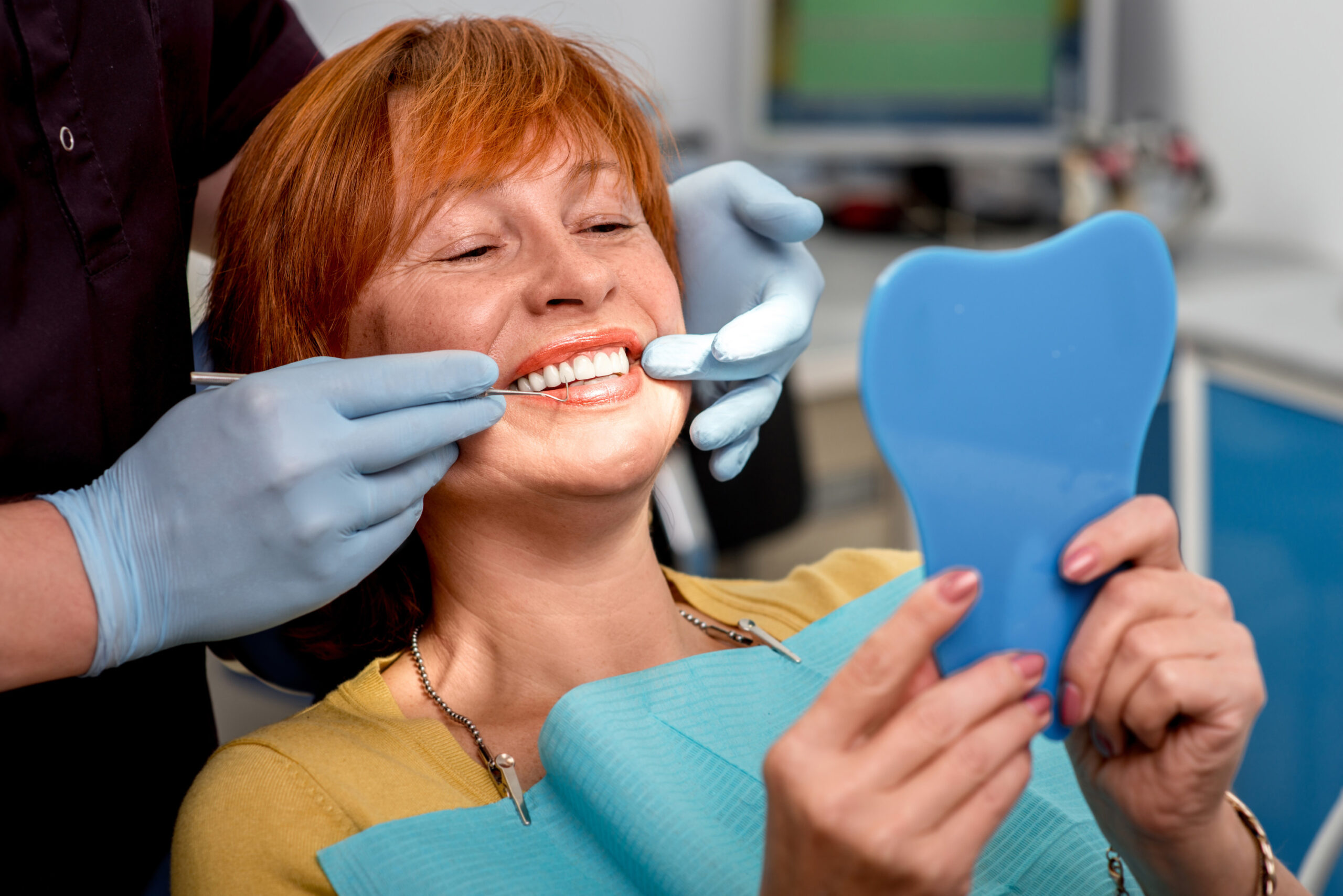To improve the appearance of teeth, thin porcelain or composite resin shells are attached to the front of the teeth.
This means of oral healthcare is a popular cosmetic dentistry solution that may address a variety of dental problems, such as chipped, discolored, or misshapen teeth. Dental veneers will be covered in greater detail in this post, along with their advantages, the varieties that are available, and the application procedure.
Pros and Cons of Dental Veneers:
Pros
- Enhanced look: Chipped, discolored, or irregularly shaped teeth can have their look significantly improved with veneers. They can be used to fill up spaces between teeth or give the appearance that teeth are straighter.
- Durability: Veneers are composed of materials that are resilient and, with appropriate maintenance, may last for many years.
- Minimally Invasive: Placing veneers is a minimally invasive procedure that usually doesn’t even need anesthetic.
- Stain-Resistant: Porcelain veneers are stain-resistant, which enables them to keep their dazzling, white appearance over time.
Cons
- Dental veneers can be pricey: normally, porcelain veneers are more costly than composite resin veneers.
- Irreversibility: The application of veneers necessitates the removal of a tiny portion of the tooth’s enamel, which is a permanent procedure.
- Sensitivity: After the veneers are applied, some patients may feel tooth sensitivity, especially to hot or cold temperatures.
- Maintenance: Despite the durability of veneers, ongoing care is still necessary to preserve their lifespan. This entails routine brushing and flossing as well as avoiding meals that are particularly hard or sticky since they might harm the veneers.
Types of Dental Veneers:
- Porcelain Veneers: Porcelain veneers in SE Calgary are made of a strong ceramic substance that closely mimics real teeth. Once it has been made especially to suit the patient’s teeth, dental cement is utilized to affix it to the tooth’s surface.
- Composite Resin Veneers: They are created by directly applying a tooth-coloured composite resin substance to the tooth’s surface. Porcelain veneers are more costly, but they are also less strong.
Process for Installing Veneers:
Usually, veneer placement requires three appointments:
- Consultation: At the initial consultation, the dentist will inspect the patient’s teeth and go over their treatment objectives. In order to develop a treatment strategy, they could take dental imprints or x-rays.
- Preparation: The dentist near you will remove a small portion of the tooth’s enamel during the second session to prepare the tooth for the veneer. After that, they will make an imprint of the tooth and send it to a dental lab so that the veneer may be made there.
- Bonding: During the last session, the dentist will use dental cement to adhere the veneer to the tooth’s surface. The veneer will then be shaped and polished to provide an outcome that looks natural.
If you’re thinking about getting dental veneers in SE Calgary, make sure to speak with a licensed dentist to see whether they’re the best option for you and to go through any worries you might have.
Does Dental Veneer Strengthen Your Teeth?
Dental veneers are not meant to strengthen teeth; instead, they are mostly used to enhance the teeth’s appearance. However, they do repair many forms of damage.
At Heritage Smiles Dental, our dentist in SE Calgary provides an apt consultation and efficient procedure for installing porcelain dental veneers near you. Get in touch today, to learn more!


